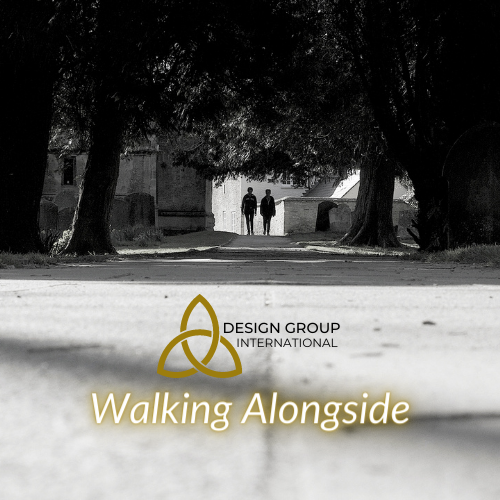A different approach
“If I’m hiring a consultant, I want them to deliver,” they said as their fist hit the table.
“You are the consultant; what do you think I should do to fix the problem?” the non-profit CEO asked.
Young children look up to adults for the right answer. I bent over backward dedicating myself to emulate the experts by repeating binary truths. I thought peace of mind, security, and my path in the world would be laid out by those in power defining success.
I couldn’t have been more wrong.
A board president reached out to me a few years ago with a common scenario. Trustees had received a signed letter from staff members requesting accountability, naming exclusion, and harm done by the trustees. The staff called them in, asking trustees to do their own work to be accountable to the most marginalized in their organizational ecosystem.
Trustees were hurt, angry, and wondering:
“Don’t the staff know their role?
Why didn’t they come to us earlier?
How could they treat us this way?”
Trustees were not able to see the staff’s pain. Defensiveness got in the way, causing them to form a strong us-vs.-them barrier. By defending themselves the trustees continued to harm staff.
The board president could envision a long-term goal of inclusiveness but had no pathway to get there.
After a six-month engagement of learning, action, and accountability, trustees shared that they were more able to see their own blind spots and defensiveness, having practiced the accountability that the staff requested. Time will tell if the marginalized staff experience a real difference; that’s the true metric for success.
Trustees learned and unlearned. It wasn’t comfortable, but it was brave. 
We Process Consultants stayed closely connected to the board president and the organization’s CEO throughout the engagement, guided by the wisdom of the staff letter. The CEO and board president together defined their success, while trustees opted into sessions unpacking topics and being held accountable in ways they weren’t always ready for. We walked alongside, engaging them in envisioning their mutual desired future, helping them more clearly see the current state that was overtly exclusionary even with good intentions.
As Process Consultants, we aren’t the sage that preaches our expertise from an ornate stage. We trust you. You are the expert in your context. It’s your path to charter, defining the success you seek, speaking truth to elevate the knowns and unknowns.
Clients decide what success looks like. The Process Consultant helps the client clarify the current challenge to eke out a brave, transformational future. This posture is unique and crucial.
You name a need; we first seek to understand what brought you here.
You ask us how to bring about the future you seek; we invite you to ground in your inspiration to change.
You are stuck; we share tools, resources, and frameworks for you to choose to apply.
You invite us in to solve a problem; we facilitate a co-designed, co-managed, and co-modified process together with you to make your vision a reality.
Some may call this weakness. We call it client-centric helping.
As a child, deferring to outside authority as the all-knowing experts about me was harmful. I was a small, curious, young person, that didn’t trust myself, my experiences, my body, or my ability to pave my way. What if I’d learned to be curious and listen to myself too?
You don’t have to be a Process Consultant to engage those around you with curiosity and openness to find out what success looks like to them.
“Being heard is so close to being loved that for the average person, they are almost indistinguishable.” - David W. Augsburger
In a world that facilitates jumping immediately to judgement, asking questions to curiously draw out another person’s definition of success is a brilliant bridge builder. Let us know how it goes for you. We love to celebrate your success as you define it.
Wishing you strength and wisdom for the journey,

/Deanna%20Rolffs.png?width=86&name=Deanna%20Rolffs.png) Deanna Rolffs (she/they)
Deanna Rolffs (she/they)
Design Group International
Senior Consultant
The core competencies of process consulting have been developed and are taught by the Society for Process Consulting. If you are interested in receiving your credential in process consulting please visit our website.
Photo by Ian Schneider on Unsplash
August 3, 2022

Comments